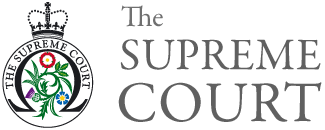UK Supreme Court's 2021-22 Annual Report and Accounts published
12 July 2022
Today, the 2021–22 Annual Report and Accounts of the Supreme Court of the United Kingdom (UKSC) and Judicial Committee of the Privy Council (JCPC) was laid in Parliament. The report covers the Court’s 12th full financial year, setting out key achievements and progress towards strategic objectives.
The Right Hon The Lord Reed of Allermuir, President of the Supreme Court, begins his foreword explaining that the Court has focused on resilience during the pandemic and recovery after it. He acknowledges that 2021–22 has been another challenging year, but notes that the Court has thrived despite the ongoing uncertainties resulting from Covid–19. This year has seen a continued return to in–person hearings for most cases (since July 2021), and the Court has been able to offer virtual and hybrid hearings where parties have been unable to attend in person.
Lord Reed pays tribute to the hard work of his fellow justices and the staff of the Court, which allowed the delivery of a high level of service to continue, including handing down 56 UKSC and 34 JCPC judgments during the reporting year.
Lord Reed highlights the importance of public access to the work of the UKSC. The report details that 1.2 million people visited the Court’s websites to find information or watch cases, how the number of in–person visitors to the court building has significantly increased since last year, and that 280k+ people watched video content on the UKSC’s YouTube channel.
Lord Reed observes that despite not always being able to meet in person, the Court has remained outward–looking throughout the year, building new connections, and strengthening longstanding ones. In–person international work has resumed, strengthening the UK’s role in the international community. He explains that the UKSC welcomed counterparts from the French Conseil d’Etat and the US Marshall Forum, amongst others, to exchange differing perspectives on the law and help strengthen the UK’s role in the international community.
Lord Reed reflects on the significant role that the UKSC has to play in increasing diversity in the legal profession. He notes the introduction of the Court’s judicial diversity and inclusion strategy, the aims of which include to support the progress of underrepresented groups into judicial roles and to further build an inclusive and respectful working environment for the Justices and staff of the Court where differences are valued. A particular highlight during the 2021–22 reporting year was working in partnership with Bridging the Bar to offer the opportunity for eight lawyers from underrepresented groups to join the Court for a paid internship programme.
Lord Reed also charts changes to the bench within the reporting year, paying tribute to the two justices who retired – Lord Lloyd–Jones and The Right Hon Lady Arden of Heswall DBE – as well as welcoming The Right Hon Lady Rose of Colmworth.
The Court’s Chief Executive, Vicky Fox, explains that the report highlights how the UKSC and JCPC have performed this year and how we have delivered on our priorities. We began this financial year with a clear vision to be a world leading court, with new values and three strategic objectives:
- Recovery: emerging from the pandemic and learning lessons
- Readiness: continuing our journey of improvement by reviewing strategies and processes
- Responsiveness: upholding the rule of law and building strong relationships with Parliament, government and other courts across the UK and overseas and playing a role in the UK’s recovery from the pandemic.
Despite the continuing uncertainties and challenges of the pandemic, Vicky Fox notes that the Court has made significant progress in all three areas. Case studies throughout the report demonstrate the impact our work is having. She notes that this work contributes to the Court’s ability to become a world leading institution in a way that adds value and contributes to the UK, the public and the economy.
Supreme Court judgments and Permission to Appeal applications
The report spotlights some of the most important and interesting cases that the UKSC and JCPC have heard. The report sets out how the UKSC heard 60 appeals and delivered 56 judgments between 1 April 2021 and 31 March 2022. The justices also determined 200 permission to appeal applications.
Judicial Committee of the Privy Council
The JCPC, which is co–located within the Supreme Court building and shares the Court's administration, heard 51 appeals, gave 34 judgments and determined 78 permission to appeal applications during 2021–2022.
Financial information
In financial terms, the Court's net expenditure decreased slightly to £6,218k (from £6,335k in 2020–21). The accounts show that the UKSC and JCPC incurred total expenditure of £13,838k during 2021–22 (£7,303k of which was judicial and staff costs) and recouped almost £7,620k in court fees, contributions from the UK court services, and other income. The Statement of Comprehensive Net Expenditure represents the net total resources consumed during the year. The results for the year are set out in the Statement.
The Annual Report also sets out how the court met its commitments in areas including international relations, sustainability and information assurance.
The Report was presented to Parliament under Section 54(1) of the Constitutional Reform Act 2005. The accounts were presented to the House of Commons under Section 6(4) of the Government Resources and Accounts Act 2000.
The full Report and Accounts can be downloaded via our website.
UKSC contacts
Sophia Linehan-Biggs
Tel: 020 7960 1883
sophia.linehanbiggs@supremecourt.uk
Cloe Ofori
Tel: 020 7960 1888
cloe.ofori@supremecourt.uk
